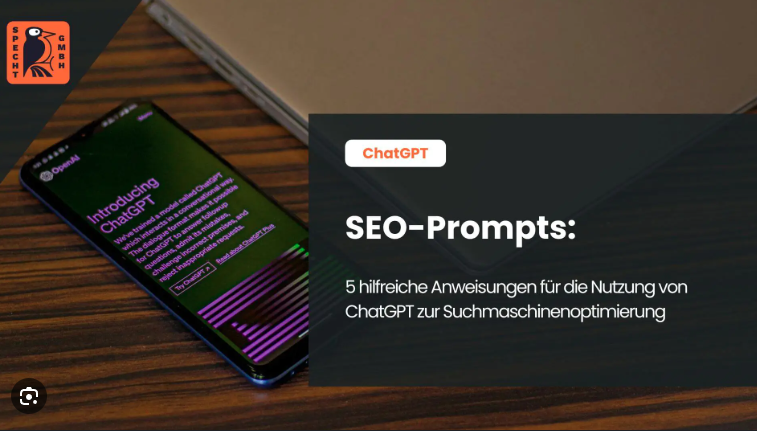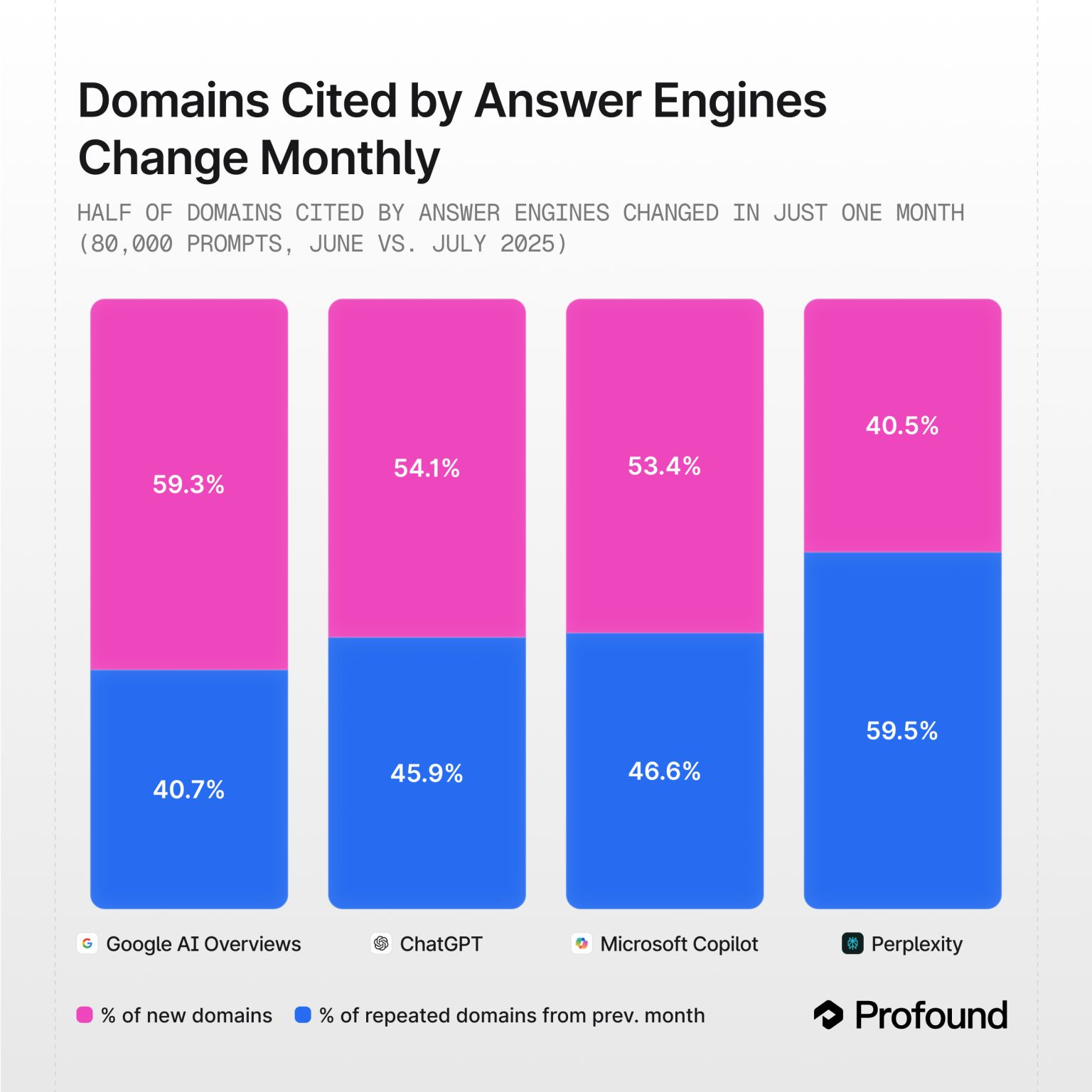🤖 How to Get ChatGPT to Recommend You? AI Search Engine Optimization

There's a lot of questionable advice out there about "hacking" ChatGPT, Perplexity, and Google Gemini. The truth is, however, that these tools are becoming the most powerful gatekeepers in the B2B purchasing decision-making process, and their operating principles differ from traditional search engines.
ChatGPT alone already has one billion active users, and in June 2025, it was the fifth most visited website in the world. It generates 2.5 billion searches daily, slowly catching up to Google's 14 billion daily searches. Meanwhile, Google itself is evolving into an AI-powered search engine, as evidenced by "AI Overviews" appearing in 13% of all searches (a doubling since January).
Increasingly, customers are no longer searching for products themselves. Instead, they're asking AI what to buy, who to trust, and how to make a decision. This means that if your product doesn't appear in their answers, it might not even exist in the customer's mind. On the other hand, if AI recommends it, it could become your fastest-growing source of new customers. As Sam Richard from ngrok told me, "It's really generating a surprising amount of business for us."
The goal is no longer about getting clicks on your website, although that's still valuable. It's about being mentioned by AI in a way that influences the right customers and ultimately drives them to your website. To achieve this, you need an answer engine optimization (AEO) strategy. (Incidentally, people can't decide on a name – I use AEO, but you can also see AI SEO, GEO, LLMO, or AIO…).
To learn how to increase your visibility in AI searches, I turned to Josh Blyskal, who leads AEO strategy and research at Profound, one of the leading players in this field. I summarized our conversation in nine practical tips you can implement today:
1. Decide which queries you want to "own."
2. Remember that answer engines work differently.
3. Create specialized, focused content.
4. Create a "neighborhood" around your product.
5. Promote mentions on Reddit.
6. Use structured comparisons and lists.
7. Fewer images, more tables.
8. Measure your impact, not just clicks.
9. Monitor citation changes.
Decide which queries you want to
Answer engines actively recommend products. Similar to SEO, you need to decide which queries are key to your brand. It's important to consider two things: the volume of queries and their relevance to your product and its unique features. Tools like Profound's Conversational Explorer can help with this.
For me, these might be queries like "best newsletters for startup founders" or "best newsletters about startup valuations." For a shoe brand, it might be "best running shoes" or "most comfortable shoes"—whatever is most important to them.
Josh recommends a list of target queries consisting of three types:
Keyword queries—those you absolutely must win (~33%).
Competitive queries—where you're competing for visibility, but they're not the foundation of your strategy (~33%).
Experimental queries—areas you haven't historically focused on, but where you can outperform your competitors (~33%).
Remember that response engines work differently
Josh compared 100,000 queries from ChatGPT and Perplexity to see how much overlap there was. He found there wasn't much. Only 11% of cited domains were common between both platforms.
You can dominate ChatGPT and be completely invisible on Perplexity. So start by optimizing for the platform that's most important to your target audience (likely ChatGPT or Google AI Overviews) and create a strategy specifically for that platform. Over time, you can expand your efforts.
Create specialized, specific content
To be featured in AI answers, you need to create new content. The goal: choose a topic everyone's talking about, then write the most definitive and detailed article on it.
If you sell shoes, you should write something very specific, like "why cushioned running shoes are better for your knees." Then, describe 20 different cushioned shoe models and provide a detailed comparison.
"It's a race for detail," Josh said. "Hyper-specificity is key. You need to dominate your product niches and differentiators."
Create an “environment” around your product
Similar to backlinks in SEO, you want your product and content to be promoted by sources trusted by AI search engines. The best starting point is user-generated content and social media sites like Reddit, LinkedIn, YouTube, and Quora, which are frequently cited by AI search engines.
Josh believes this is a great opportunity to find niche creators or blogs that, despite having a small following, have a surprisingly high number of citations in reply engines. This could be a great affiliate opportunity.
Get mentioned on Reddit
The single best source for "ambiance" is Reddit. It's currently the most cited domain by ChatGPT and Perplexity, accounting for about 6% of all citations.
Josh advises promoting your brand in relevant Reddit threads, whether you do it as an official representative or anonymously. Even a comment like "Profound is great" can have a huge impact.
There are various ways to do this, some risky. A good start is creating a Reddit user page, which will place your information on the Reddit domain. A more risky approach is commenting on specific threads related to your target queries. If you decide to do this, remember that your comments shouldn't be solely about your product but should also include a few sentences about your competitors.
Use structured comparisons and lists
AI response engines essentially outsource the "thinking" to others who gather and organize information for them. These engines like to pull content in organized blocks, meaning they favor highly structured content, concise paragraphs, and clear lists.
Josh claims that one in three citations in AI engines comes from comparison lists. This is the most effective type of content (blog articles are second, accounting for one in ten citations). When in doubt, go with a comparison list.
Fewer images, more tables
Reply engines don't currently handle images well, as Josh points out. They much prefer structured tables embedded in pages.
Charts and images used to be the primary way to present information (I love them myself, especially on LinkedIn). But if you want to be cited by ChatGPT, limit the number of images in your posts. If you do use them, make sure you add very specific alt text that describes what's in them. Or, even better, simply convert the image into a table.
Measure your reach, not just clicks
Many brands are seeing a surge in traffic from ChatGPT or Perplexity. However, most AI searches are "zero-click searches"—the user gets the AI's answer and moves on. Therefore, clicks and website traffic aren't the best indicator of your performance.
This means you need to revisit key brand metrics like share-of-voice—how often your product is being talked about compared to your competitors. Manual methods, like adding a "How did you hear about us?" question to your contact form, are also worth considering. These methods will help you uncover other forms of influence that don't generate clicks, such as podcasts, word-of-mouth, or social media.
Monitoruj zmiany cytowań
Na koniec małego ostrzeżenia: odwołanie w silnikach odpowiedzi są bardzo niestabilne. Josh wystąpił 80 000 zapytań i, że prawie dwa ostatnie domen zostały usunięte w ciągu jednego miesiąca.
Można się dostosować, że zmiana będzie możliwa, ponieważ modele językowe (LLM) stale rozwijają się i rozwijają, co jest największym udostępnianiem treści. Przypuszczam, że zostanie to wywołane jeszcze bardziej szczegółowo, ponieważ silniki są uruchamiane z zapytaniań.
W pierwszym okresie częstości odświeżania zapytania (co tydzień do dobrego początku). Bądź gotowy na zmiany, gdy choroby LLM-ów będą się zawsze zmieniać.









